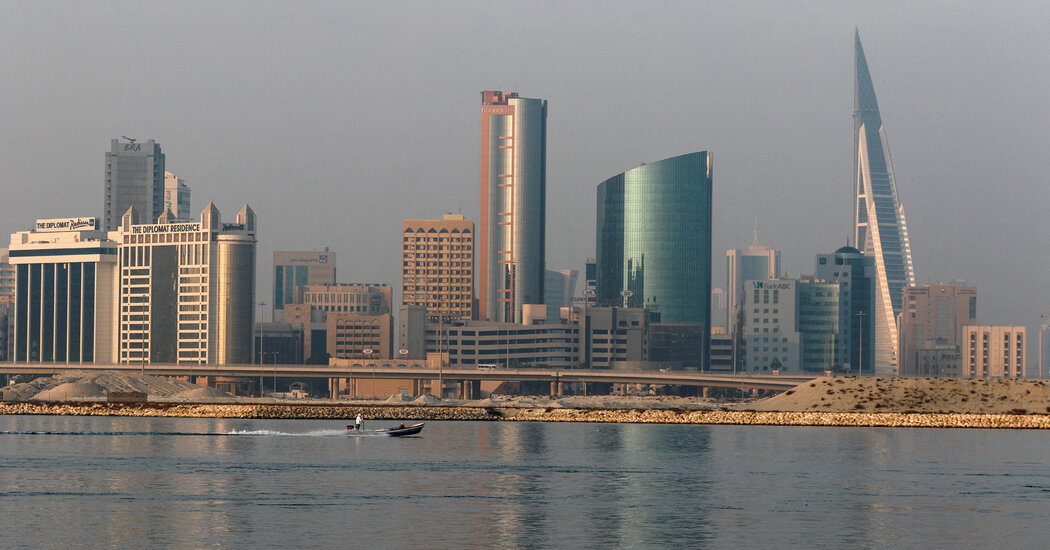The financing faced criticism that it doesn’t mesh with U.S. commitments on climate change. Earlier, two climate advisers had resigned over the plan.
A federal bank that finances projects overseas voted Thursday to put $500 million toward an oil and gas project in Bahrain, a transaction that critics said was out of step with President Biden’s climate commitments.
Just days before the vote, six lawmakers had urged the bank, the Export-Import Bank of the United States or ExIm, not to move ahead with the financing, given the project’s negative effects on the climate. “We cannot afford to have ExIm undermine domestic and international climate progress,” lawmakers led by Senator Jeff Merkley, Democrat of Oregon, said in a letter to the bank’s board of directors last week.
The bank said that the financing, in the form of loan guarantees, was consistent with its mission to bolster American exports and jobs. The new drilling in Bahrain could mean lucrative contracts for American engineering and construction-management firms, the bank said. The project will include measures to keep greenhouse gases in check, it said in a statement.
The Bahrain deal comes just months after the United States joined nearly 200 other nations in a promise to transition away from fossil fuels, the burning of which is dangerously overheating the planet. It also comes as Mr. Biden is working to shore up support from climate-minded voters as he runs for re-election.
In February, plans to finance the Bahrain projects prompted two of the bank’s climate advisers to resign. And Mr. Biden’s aides have expressed concern about the direction of the bank, which has consistently flouted a 2021 presidential order that government agencies stop financing carbon-intensive projects overseas.
The Bahrain project is one of several controversial overseas fossil fuel ventures that ExIm Bank is currently considering. Also being considered are a natural gas export project in Papua New Guinea and an offshore pipeline in Guyana, alongside some projects related to renewable energy like a zinc-lead mine in Greenland.
Between 2017 and 2021 the bank provided nearly $6 billion in financing for fossil fuel projects and $120 million for clean energy, according to a tally by the Perspectives Climate Group and the nonprofit group Oxfam.
